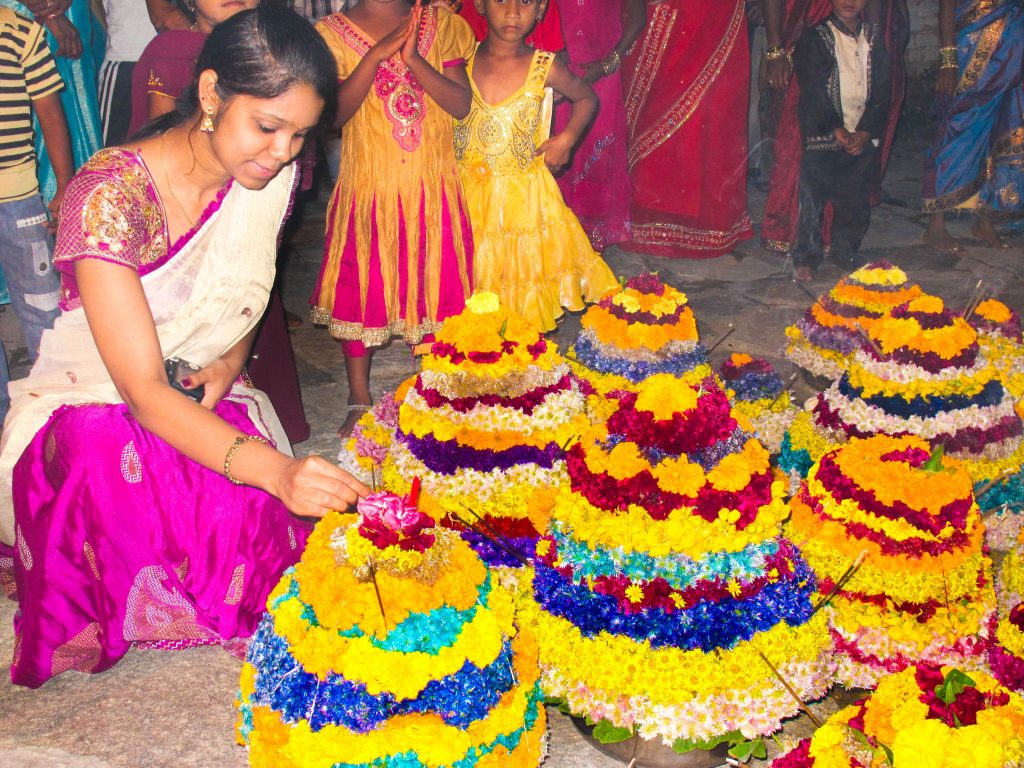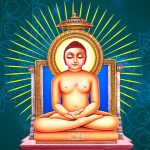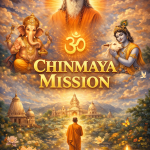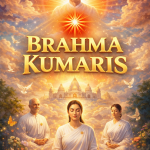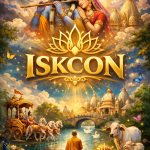Bathukamma is a colorful and vibrant festival of Telangana and celebrated by women, with flowers that grow exclusively in each region. This festival is a symbol of Telangana’s cultural identity.
Bathukamma comes during the latter half of monsoon, before the onset of winter. The monsoon rains usually bring plenty of water into the freshwater ponds of Telangana and it is also the time when wildflowers bloom in various vibrant colors all across the uncultivated and barren plains of the region.
The most abundant of these are the ‘gunuka poolu’ and ‘tangedu poolu’. There are other flowers too like the banti, chemanti, Nandi-vardhanam, etc. Bathukamma is celebrated by the womenfolk of Telangana, heralding the beauty of nature in vibrant colors of multitudinous flowers.
The festival begins a week before the grand ‘Saddula Batukamma’ (the grand finale of the Batukamma festival) which falls two days before Dussehra. The women folk normally get back to their parent’s home from their in-laws and breathe the fresh air of freedom to celebrate the colors of flowers.
For one complete week, they make small ‘Batukammas’, play around them every evening, and immerse them in a nearby water pond. On the last day, the menfolk of the house go into the wild plains and gather the flowers like gunuka and tangedi. They bring home bagfuls of these flowers and the entire household sits down to make the big ‘Batukamma’.
The flowers are carefully arranged row after row in a brass plate (called taambalam) in circular rows and in alternate colors. As evening approaches the women folk dress colorfully with the best of their attire and adorn a lot of ornaments and place the Batukamma in their courtyard.
The women of the neighborhood also gather in a large circle around it. They start singing songs by circling it repeatedly, building a beautiful human circle of unity, love, sisterhood.
About Bathukamma
After playing in circles around the “Batukammalu”, before the onset of dusk, the womenfolk carry them on their heads and move as a procession towards a bigger water body near the village or town. The procession is extremely colorful with the decorations of women and the “Batukammalu”.
Songs of folklore are sung in chorus throughout the procession and the streets resonate with them. Finally, when they reach the water pond the “Batukammalu” are slowly immersed into the water after some more playing and singing. Then they share the ‘maleeda’ (a dessert made with sugar or raw sugar and cornbread) sweets amongst the family members and neighborhood folks.
They return to their homes with empty ‘taambaalam’ singing songs in praise of Batukamma. The songs of Batukamma echo in the streets until late at night during the entire week.
Batukamma celebrates the inherent relationship between earth, water, and human beings. During the entire preceding week, women make ‘boddemma’ (a deity of Gowri – mother Durga – made with earthly mud) along with Batukamma and immerse it in the pond. This helps reinforce the ponds and helps it retain more water.
The flowers used in Batukamma have a great quality of purifying water and such flowers when immersed in abundance into the pond have the effect of cleansing the water and making the environment much better. In times where the freshwater ponds are gradually diminishing and dwindling away, it is indeed a pride of Telangana that its womenfolk (with mostly agrarian background) inherently know how to make them better by celebrating the beauty of nature. It is something we indeed have to feel proud of.
The festival heralds the beauty of nature, the collective spirit of Telangana people, the indomitable spirit of women folks, and also the scientific approach of the agrarian people towards preserving the resources of nature in a celebrative way. Hence, Bathukamma is the icon of the cultural identity of Telangana.
Must Read:Navaratri: Know the Nine Forms of Mother Goddess
History of Bathukamma
 According to the Hindu religious scholars and pundits, once upon a time, there was a King named Dharmangada who belonged to the Chola Dynasty. This particular king largely ruled over South India. His wife gave birth to a girl child after many years of rituals and prayer. She was named Princess Lakshmi.
According to the Hindu religious scholars and pundits, once upon a time, there was a King named Dharmangada who belonged to the Chola Dynasty. This particular king largely ruled over South India. His wife gave birth to a girl child after many years of rituals and prayer. She was named Princess Lakshmi.
During Baby Lakshmi brought up she survived many unforeseen accidents and incidents in life. The parents felt life and death while bringing up their only child. Later they named their daughter Bathukamma. According to the Telugu language, Bathuku means life and Amma means a female name and mother.
Then on this particular Bathukamma festival is grandly celebrated by young girls in the Telangana region of Telangana in India. The main purpose of this particular festival is to pray with devotion to the Goddess in the strong belief that all young girls would get their beloved husbands as per their desire and wish soon.
On the other hand, married women along with their household friends and relatives celebrate this festival in order to pray to the Goddess for prosperity and good health of their family. This particular festival is primarily celebrated by unmarried young girls who are of the marriageable age. On the other hand men folks along with their wives and other family members, relatives and friends help in the gathering of flowers and floral arrangement of a beautiful flower stack during the festival season.
This festival plays a vital role in the culture and tradition of the Telangana region of Telangana. Every year, the Bathukamma festival is eagerly looked forward to by the Hindu religious people.
Bathukamma festival has many myths behind its festivity. According to the Hindu religious scholars and pundits, one myth regarding Goddess Gauri is that she after a fierce fight killed ‘Mahishasura’ the demon. After this serious act, she went into a deep sleep due to fatigue on the ‘Aswayuja Padyami’ day. All the Hindu religious devotees strongly prayed with devotion and dedication for her to wake up. It is to be noted that she woke up on the Dasami day.
The other version of Bathukamma is that there was a king named Dharmangada and a queen named Satyavati belonging to the Chola Dynasty. They lost their hundred sons on the war front. So they prayed and performed a ritual to Goddesses Lakshmi to be born as their daughter. The Goddesses heard it and immediately obliged them. On her birth, many scholars and pundits visited the baby at the royal palace and blessed her by calling Bathukamma or live forever.
Another version says that Parvathi or Batakamma is an adherent lover of flowers. The seasonal flowers of spring are arranged on a square bamboo frame or square wooden plank with the size of frames that is hardly tapering off to directly form a pinnacle on the top. It looks like the shape of a temple tower or ‘Gopura’. On top of the flowers, a lump of turmeric is kept. The worship of Goddess Batakamma is done with this little floral as a mountain.
This festival belongs to the womenfolk of the Telangana region. Then men and children participate with a lot of interest and enthusiasm in this festivity. Young unmarried girls play an active role in this festival.
Must Read: Sringeri Dasara Festivities kicks off with Mahabhishekam
Meaning of Flower Festivities

Batukamma celebrates the inherent relationship between earth, water, and human beings. During the entire preceding week, women make ‘boddemma’ (a deity of Gowri – mother Durga – made with earthly mud) along with Batukamma and immerse it in the pond. This helps reinforce the ponds and helps it retain more water.
The flowers used in Batukamma have a great quality of purifying water and such flowers when immersed in abundance into the pond have the effect of cleansing the water and making the environment much better.
In times where the freshwater ponds are gradually diminishing and dwindling away, it is indeed a pride of Telangana that its womenfolk (with mostly agrarian background) inherently know how to make them better by celebrating the beauty of nature. It is something we indeed have to feel proud of.
Nine Days Nine Bathukamma Rituals

For the nine days, in the evening, women, especially young girls, gather in large numbers with their Bathukammas in open areas of their locality. All women will form a circle around the Bathukamma and start singing folk songs by clapping their hands and revolving around the Bathukamma, synchronizing steps and claps in unison provide a splendorous look to the festivities.
Each day has a name mainly signifying the type of “naivedyam” (food offering) offered. Most of the naivedyam (food offering) offered are very simple to prepare, and usually, young children or young girls are mainly involved in the preparation of the offerings for the first eight days of the festival. The last day, called saddula Bathukamma is when all the women take part in the preparation. Following is the list of names for each day and the naivedyam offered on that day.
Engili Pula Bathukamma: The first day of the festival falls on Mahalaya Amavasya, also known as Pethara Amavasya in the Telangana region. Food offering/Naivedyam: Nuvvulu(Sesame seeds) with biyyampindi (rice flour) or nookalu(coarsely ground wet rice).
Atkula Bathukamma: The second day is called Atkula bathukamma, which falls on the Padyami (first day) of Ashwayuja Masam. Food offering/Naivedyam: Sappidi Pappu (Bland boiled lentils), Bellam (jaggery), and atkulu (flattened parboiled rice)
Muddapappu Bathukamma: The third day of Bathukamma falls on Vidiya/second day of Ashwayuja Masam. Food offering/Naivedyam: muddapappu (softened boiled lentils), milk, and bellam (jaggery).
Nanabiyyam Bathukamma: The fourth day falls on thidiya/third day of Ashwayuja Masam. Food offering / Naivedyam: nananesina biyyam (wet rice), milk, and bellam (jaggery)
Atla Bathukamma: The fifth day falls on the Chaturthi/fourth day of Ashwayuja Masam. Food offering/Naivedyam: uppidi Pindi atlu( pancakes made from wheat lets), or Dosa.
Aligina Bathukamma: The sixth day falls on the Panchami/fifth day of Ashwayuja Masam. No food offering is made.
Vepakayala Bathukamma: The seventh day falls on the sashti/sixth day of Ashwayuja Masam. Food offering/Naivedyam: rice flour shaped into the fruits of the neem tree is deep-fried.
Vennamuddala Bathukamma: The eight-day falls on Saptami/seventh day of Ashwayuja Masam. Food offering/Naivedyam: nuvvulu(sesame), Venna(Butter) or ghee(clarified butter), and bellam (jaggery).
Saddula Bathukamma: The ninth day of bathukamma is celebrated on Ashtami/eight-day of Ashwayuja Masam, and coincides with Durgashtami. Food offering/Naivedyam: Five types of cooked rice dishes: perugannam saddi(curd rice), chinthapandu pulihora saddi(tamarind rice), nimmakaya saddi(lemon rice), kobbara saddi(coconut rice), and nuvvula saddi(sesame rice).
[video_ads]
[video_ads2]
You can send your stories/happenings here:info@religionworld.in

